Results
-
 £31.00
£31.00Carol of The Bells - Brass Band - MM018 - Ukrainian Carol Arranged by Chip Davis
COMPOSER: Ukrainian Carol Arranged by Chip DavisARRANGER/ADAPTED : Tim MiddletonThis is a great Brass Band adaption of the "Mannheim Steamroller" version of "The Carol Of the Bells".A driving and rhythmical arrangement and a must-have for your next Christmas Concert!
In Stock: Estimated dispatch 3-5 working days
-
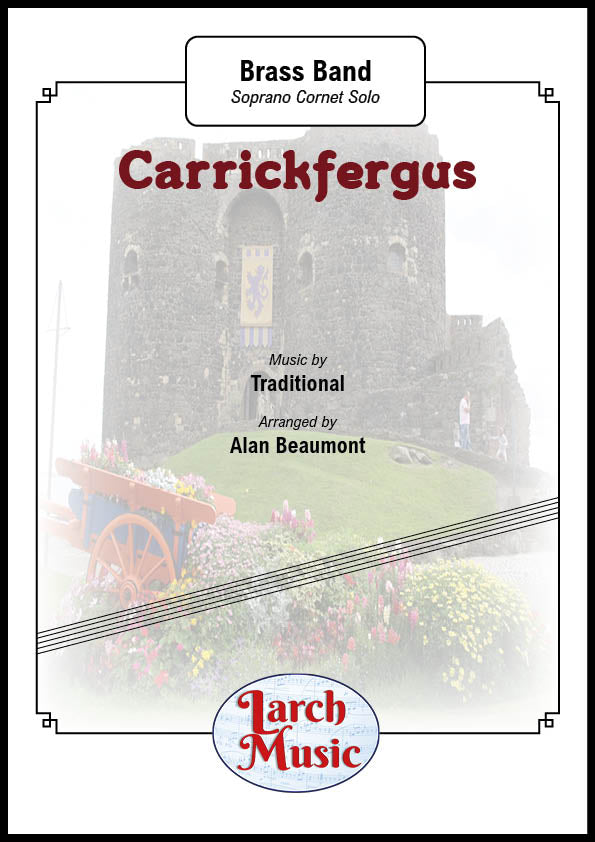 £30.00
£30.00Carrickfergus - Soprano Cornet & Brass Band Sheet Music Full Score & Parts - LM399
COMPOSER: TraditionalARRANGER: Alan BeaumontThe famous Irish tune given a fresh solo approachBrass Band Sheet Music Full Score & Parts"Carrickfergus" is a famous Irish folk song and traditional lament, often interpreted as a heartfelt ballad oflost love, loneliness, and a deep, aching longing for one's home or a past life. Named after the town in County Antrim, Northern Ireland, it features lyrics about a wanderer reflecting on unattainable love, often evoking themes of emigration, old age, and nostalgia.LM399 - ISMN : 9790570003990
In Stock: Estimated dispatch 3-5 working days
-
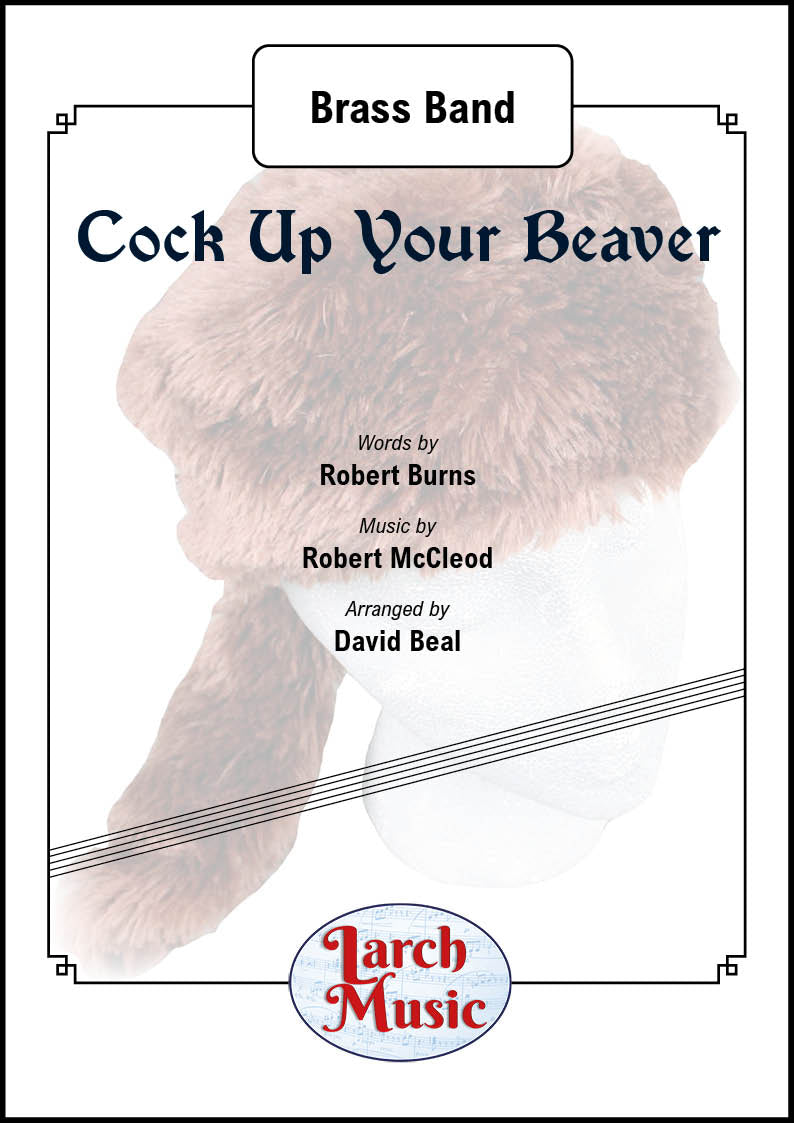 £25.00
£25.00Cock Up Your Beaver (McLeod/Burns arr. by David Beal) - Brass Band Full Score and Parts - LM010
COMPOSER: McLeod & BurnsARRANGER: David BealBrass Band Sheet Music - Full Score and PartsA tongue in cheek arrangement and an audience foot-tapper.A tune about taking off your hat based on a poem by Robbie BurnsCock Up Your Beaveris a song and poem byRobert Burns, written in 1792. It is written inScottish dialectand thebeaverrefers to a gentleman's hat in an era when all high quality men's hats were made offeltedbeaverfur.When first my brave Johnnie lad came to this town,He had a blue bonnet that wanted the crown,But now he has gotten a hat and a featherHey, brave Johnnie lad, cock up your beaver!Cock up your beaver, and cock it fu' sprush!We'll over the border and gie them a brush:There's somebody there we'll teach better behaviourHey, brave Johnnie lad, cock up your beaver!ISMN - 9790570000104
In Stock: Estimated dispatch 3-5 working days
-
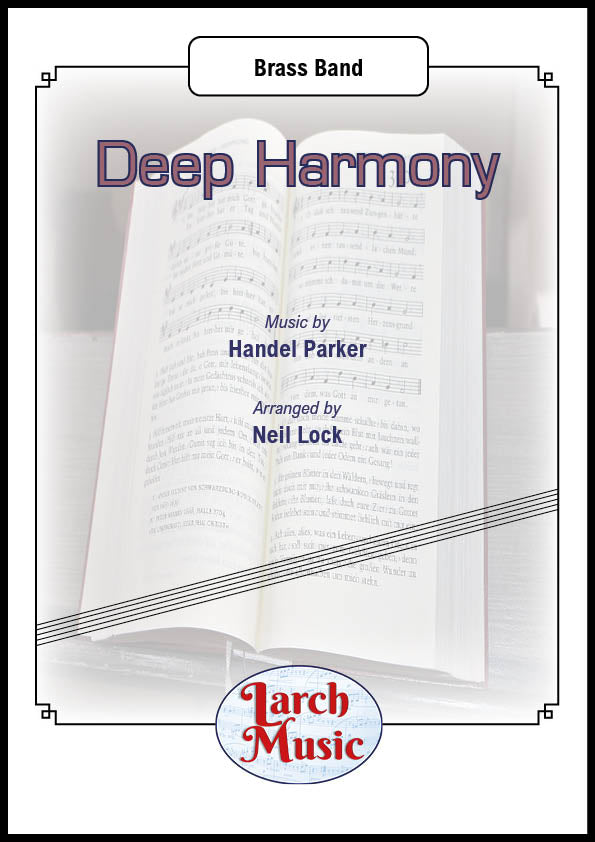 £25.00
£25.00Deep Harmony (Handel Parker arr. by Neil Lock) - Brass Band Sheet Music Full Score & Parts - LM670 - Handel Parker - Neil Lock
COMPOSER: Handel ParkerARRANGER: Neil LockThe popular hymn tune by Handel Parker treated to a new 3 verse brass band arrangementSuitable for most bandsLM671 - ISMN : 9790570006700
In Stock: Estimated dispatch 3-5 working days
-
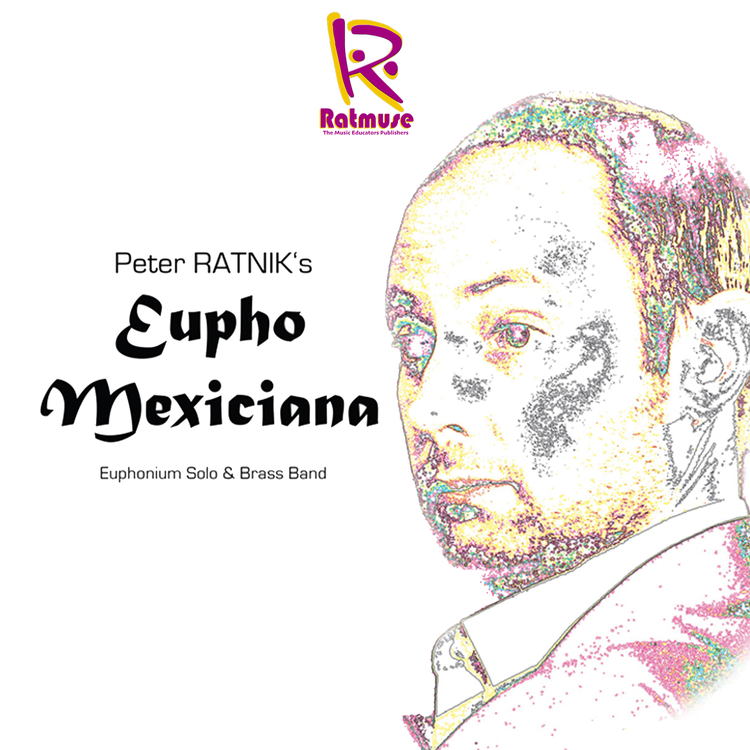 £35.00
£35.00Eupho Mexicana - Brass Band - RMP006 - Peter Ratnik
COMPOSER: Peter RatnikWritten for US Euphonium soloist Jason Ham, Peter Ratnik's Eupho Mexiciana is a show case of time changes, simple melodies and soaring Euphonium work. This is a must for the next world champion.CLICK HERE TO HEAR THIS PIECE - Eupho Mexiciana (Eupho Solo & Brass Band) by Peter Ratnik
In Stock: Estimated dispatch 3-5 working days
-
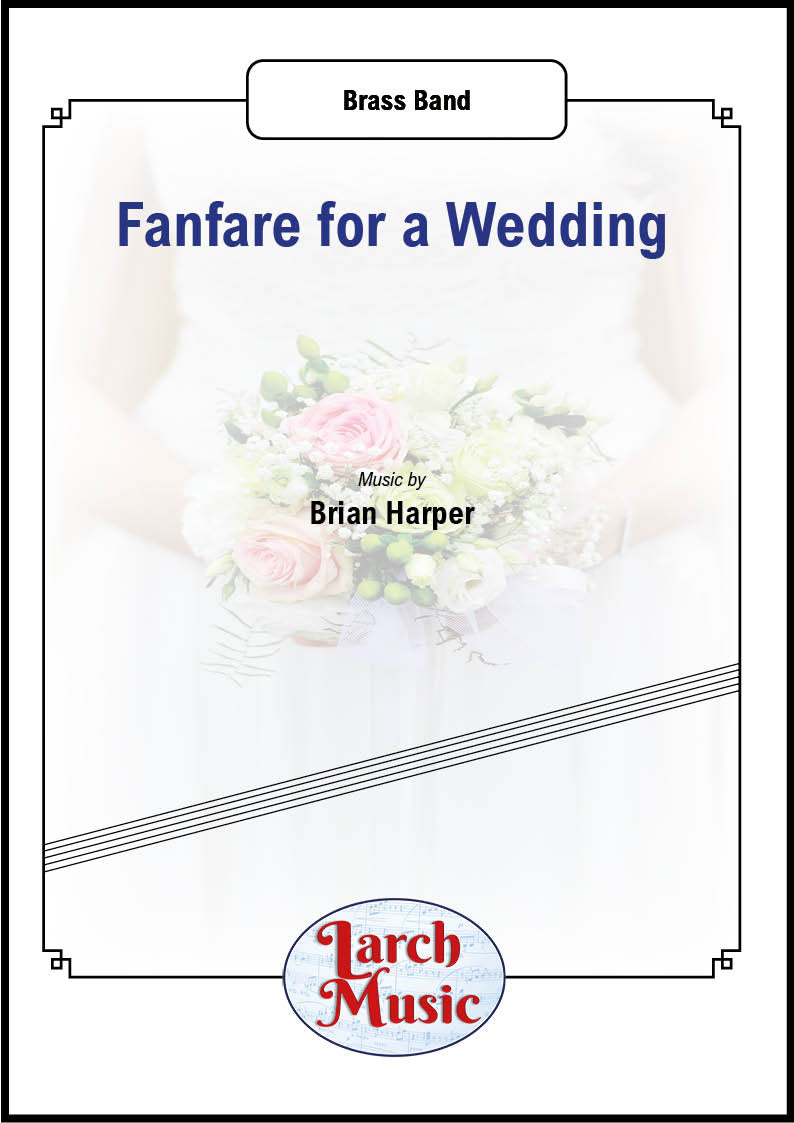 £25.00
£25.00Fanfare for a Wedding - Brass Band Sheet Music Full Score & Parts - LM858 - Brian Harper
COMPOSER: Brian HarperA great addition to the brass band repertoire from Brian HarperA fanfare fit for any wedding ceremonyLM858 - ISMN : 9790570008582
In Stock: Estimated dispatch 3-5 working days
-
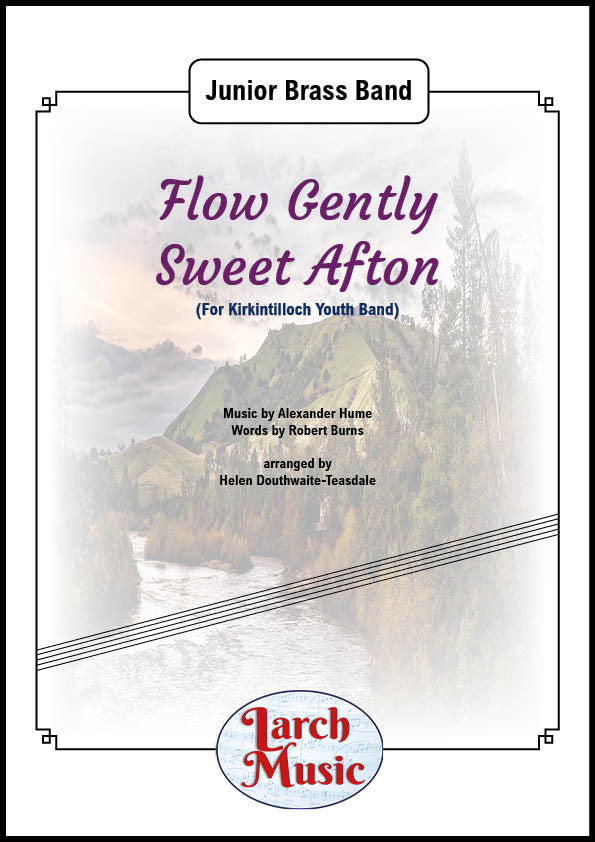 £25.00
£25.00Flow Gently Sweet Afton - Junior Brass Band Sheet Music Full Score & Parts - LM331
COMPOSER:Alexander HumeWORDS : Robert BurnsARRANGER: Helen Douthwaite-TeasdaleJunior Brass Band Sheet Music Full Score & PartsISMN : 979-0-57000-331-0Scored forSolo Cornet2nd Cornet3rd Cornet1st Tenor Horn2nd Tenor HornBaritoneTromboneBass TromboneEuphoniumBass in EbBass in BbTimpaniPercussionDrum SetLM331 - ISMN : 9790570003310
In Stock: Estimated dispatch 3-5 working days
-
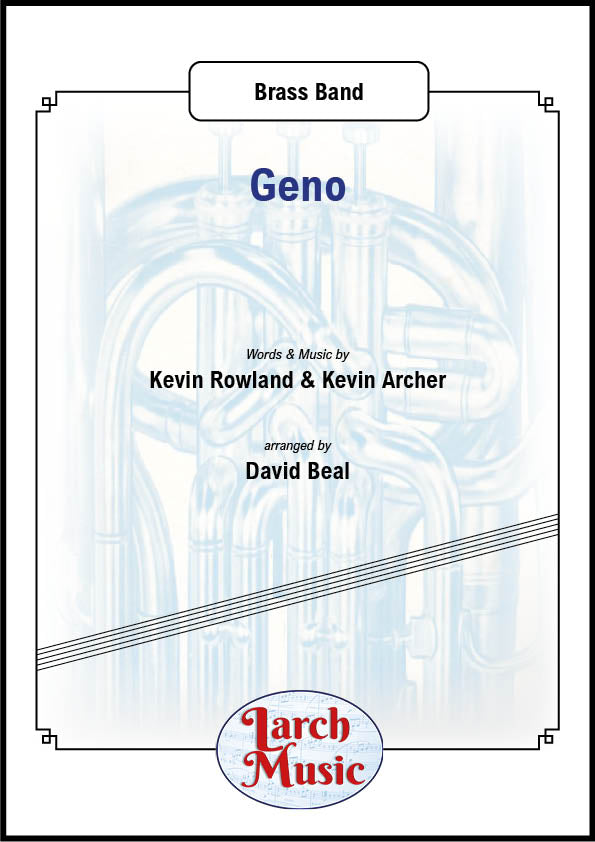 £30.00
£30.00Geno - Brass Band - LMAM010 - - David Beal
Any purchases from this site cannot be made please click on the link (PURCHASE PDF - Sheet Music Direct or Sheet Music Plus). Do not click on "Add to cart" or buy with Shop button.Any purchases from this site cannot be made please click on the link (PURCHASE PDF - Sheet Music Direct or Sheet Music Plus) above. Do not click on "Add to cart" or buy with Shop button.COMPOSER:Kevin Archer, Kevin RowlandARRANGER: David Beal"Geno" is a 1980 single by Dexys Midnight Runners. Written by Kevin Archer and Kevin Rowland, it was the band's second single and their first UK number one, staying at the top of the Singles Chart for two weeks.The song charted at number two in Ireland.Now available for Brass BandAny purchases of this Item cannot be made from this listing please click on the link above - Any purchase using this site will be refundedAbout Digital DownloadsDigital Downloads are downloadable sheet music files that can be viewed directly on your computer, tablet or mobile device. Once you download your digital sheet music, you can view and print it at home, school, or anywhere you want to make music, and you don't have to be connected to the internet. Just purchase, download and play!PLEASE NOTE: Your Digital Download will have a watermark at the bottom of each page that will include your name, purchase date and number of copies purchased. You are only authorized to print the number of copies that you have purchased. You may not digitally distribute or print more copies than purchased for use (i.e., you may not print or digitally distribute individual copies to friends or students).
In Stock: Estimated dispatch 3-5 working days
-
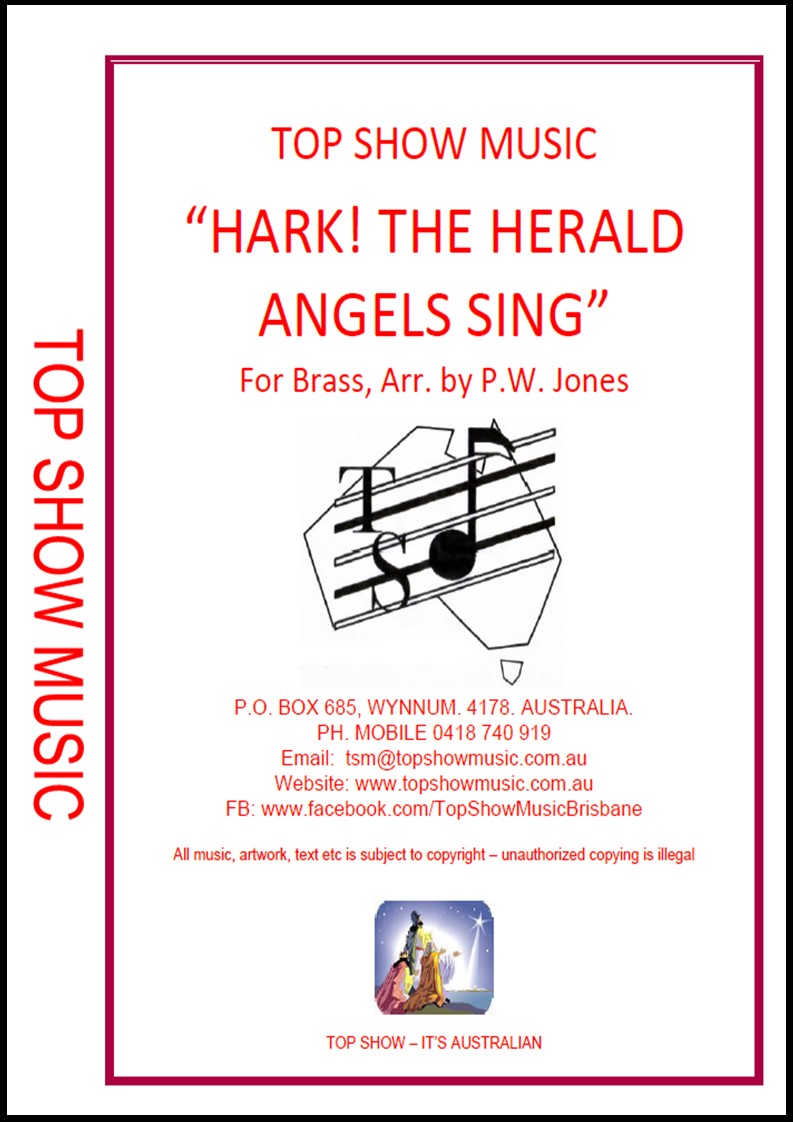 £25.00
£25.00Hark The Herald Angels Sing - Brass Band -
COMPOSER:The classic Christmas tune for brass band
In Stock: Estimated dispatch 3-5 working days
-
 £31.00
£31.00Hi 5 Christmas Selection - Brass Band
COMPOSER: Harriot & HarrisARRANGER: Tim MiddletonThis new upbeat arrangement for Brass Band is ideal for entertaining children at your Christmas concerts.Includes the following Hi-5 Xmas songs from Australia's award winning children's TV entertainers: Santa Clause is Coming, T'was the night before Xmas and Santa Wear Your Shorts.
In Stock: Estimated dispatch 3-5 working days










